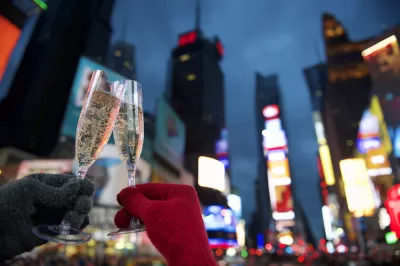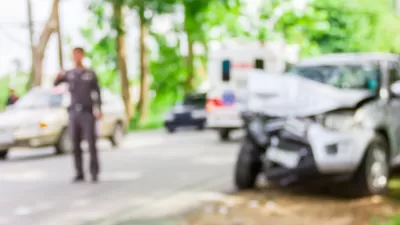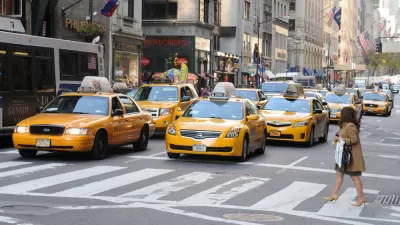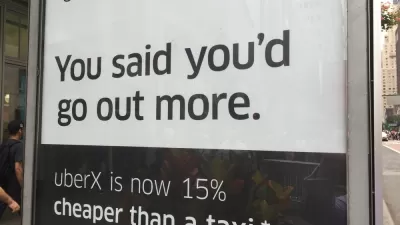A news study raises questions about the public health effects of the widespread availability of a ride enabled by companies like Uber and Lyft—while it's easier to avoid drunk driving, it's also easier to drink.

An article published by The Economist reveals a new twist in the ongoing scientific inquiry into the effects ride-hailing companies like Uber and Lyft have had in society:
Among other things, Uber has made it far easier for party-goers to get home safely. One study published in 2017 found that after Uber’s arrival in Portland, Oregon, alcohol-related car crashes declined by 62%. But at the same time, the spread of ride-hailing apps may have tempted people to drink to excess, knowing that they won’t be at the wheel. A new study by three economists—Jacob Burgdorf and Conor Lennon of the University of Louisville, and Keith Teltser of Georgia State University—finds that the widespread availability of ride-sharing apps has indeed made it easier for the late-night crowd to binge.
The article details the city's methodology, and briefly discusses the scientific ambivalence about the public health impacts of ride-hailing companies.
FULL STORY: After Uber arrives, heavy drinking increases

Alabama: Trump Terminates Settlements for Black Communities Harmed By Raw Sewage
Trump deemed the landmark civil rights agreement “illegal DEI and environmental justice policy.”

Planetizen Federal Action Tracker
A weekly monitor of how Trump’s orders and actions are impacting planners and planning in America.

The 120 Year Old Tiny Home Villages That Sheltered San Francisco’s Earthquake Refugees
More than a century ago, San Francisco mobilized to house thousands of residents displaced by the 1906 earthquake. Could their strategy offer a model for the present?

Ken Jennings Launches Transit Web Series
The Jeopardy champ wants you to ride public transit.

BLM To Rescind Public Lands Rule
The change will downgrade conservation, once again putting federal land at risk for mining and other extractive uses.

Indy Neighborhood Group Builds Temporary Multi-Use Path
Community members, aided in part by funding from the city, repurposed a vehicle lane to create a protected bike and pedestrian path for the summer season.
Urban Design for Planners 1: Software Tools
This six-course series explores essential urban design concepts using open source software and equips planners with the tools they need to participate fully in the urban design process.
Planning for Universal Design
Learn the tools for implementing Universal Design in planning regulations.
Clanton & Associates, Inc.
Jessamine County Fiscal Court
Institute for Housing and Urban Development Studies (IHS)
City of Grandview
Harvard GSD Executive Education
Toledo-Lucas County Plan Commissions
Salt Lake City
NYU Wagner Graduate School of Public Service





























